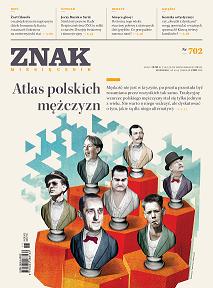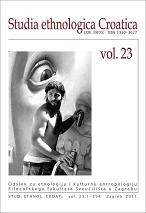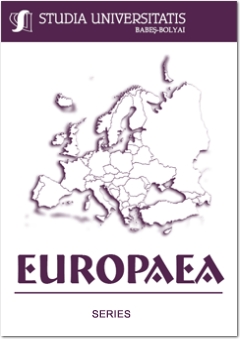
We kindly inform you that, as long as the subject affiliation of our 300.000+ articles is in progress, you might get unsufficient or no results on your third level or second level search. In this case, please broaden your search criteria.














The article analyzes and contextualizes three case studies – Zoom Festival from the town of Rijeka, Zagreb UrbanFestival and Culture Shock Festival from Križevci – marking them as interventional urban art festivals. The authors, by providing separate insights in each of the conceptually different festivals, emphasize the aspects on the basis of which they interpreted their subversive character: conflicts inside independent cultural scene, strategically hidden subversive elements in the program itself or potential of the festival to serve as a platform for civil activism. The common element appeared to be the political impact of those festivals on local, but also national level, as well as the ambivalent attitude towards the cultural politics which determine their institutional framework.
More...
The Erased residents of Slovenia comprise a group of 25,671 individuals, who found themselves without political, economic and social rights soon after Slovenia became independent. The present article discusses a number of aspects of economic and social exclusion of the Erased, as well as the impact of the mentioned exclusion on their bodies and state of mind. Amongst others, the incidence of živci (“upset nerves”) and živčnost (“nervousness”) as the embodied metaphor of socio-political and economic inequality brought about by the erasure is analyzed through a medical anthropological perspective.
More...
Aleksandar Bošković: Kratak uvod u antropologiju. Zagreb: Jesenski i Turk, 2010., 227 str. Branko Đaković: Igre oko vatre. Prilog etnološkim istraživanjima o vatri. Samobor: Meridijani, 2011., 229 str. David Graeber: Direct Action. An Ethnography. Edinburgh, Oakland, Baltimore: AK Press, 2009., 568 str. Gayatry Chakravorty Spivak: Nacionalizam i imaginacija i drugi eseji. Zagreb: Fraktura, 2011., 197. str. Goran Pavel Šantek: Anthropos religiosus: antropološko-religijski ogledi. Zagreb: Ibis grafika, 2011.,117 str. Tomo Vinšćak: Tibetski buddhizam i bön. Zagreb: Ibis grafika d. o. o., 2011., 140 str. Jasna Čapo and Valentina Gulin Zrnić, eds.: Mjesto, nemjesto: Interdisciplinarna promišljanja prostora i culture. Zagreb: Institut za etnologiju i folkloristiku, 2011., 443 str. Milana Černelić i Marijeta Rajković Iveta, ur.: Zapisi iz gornjih Ravnih kotara: Etnološki, povijesni i muzeološki prilozi o Islamu Latinskom, Islamu Grčkom, Kašiću i Podgradini. Zagreb: Filozofski fakultet, Odsjek za etnologiju i kulturnu antropologiju, Centar za komparativnohistorijske i interkulturne studije, FF-press u suradnji sa znanstvenim projektima Identitet i etnokulturno oblikovanje Bunjevaca i Triplex Confinium: hrvatska višegraničja u euromediteranskom kontekstu, 2010., 377 str. Marijana Hameršak i Suzana Marjanić, ur. Folkloristička čitanka. Zagreb: AGM i Institut za etnologiju i folkloristiku, 2010., 562 str. Suzana Marjanić i Ines Prica, ur.: Mitski zbornik. Zagreb: Institut za etnologiju i folkloristiku (Biblioteka Nova etnografija), Hrvatsko etnološko društvo i Scarabeus-naklada, 2010., 574 str. Karmen Medica, Goran Lukič i Milan Bufon, ur.: Migranti v Sloveniji – med integracijo in alienacijo. Koper: Univerzitetna založba Annales, 2010., 270. str. Andrej Pleterski i Goran Pavel Šantek, ur.: Mirila: kulturni fenomen (Studia mythologica Slavica – Supplementa; Supplementum 3). Ljubljana: Inštitut za arheologijo ZRC SAZU, 2010., str. 231 Kultura i ekonomija. Godišnji skup Hrvatskoga etnološkog društva. Zagreb, 9. do 11. lipnja 2011. Southeast European (Post) Modernities. 6. konferencija InASEA-e. Regensburg, Njemačka, 28. 4. – 1. 5. 2011. Re-Thinking Humanities and Social Sciences – The Zone and Zones – Radical Spatiality in Our Times. Druga međunarodna znanstvena konferencija Sveučilište u Zadru, 1. – 4. rujna 2011. godine People Make Places – ways of feeling the world. Deseti kongres SIEF-a. Lisabon, Portugal, 17. – 21. travnja 2011. godine
More...
The article catalogues performance arts in which food is used as a political stance, while pointing out in that process the danger of the implemented metaphor of the political kitchen in the Croatian period of transition, and of the overall recession and depression. The stimulus for writing about this topic that life itself imposes came to me from two artists (Siniša Labrović and Marko Marković), who oriented their performance art to auto-cannibalism – to drinking and slurping their own blood (M. Marković) and urine (S. Labrović) and to eating their own tissue, their own flesh (M. Marković).
More...
The article discusses the possibility of including stories on the way of life, documented through ethnographic research, in tourist offer. Starting from a concrete example based on the stories of masons and stone-cutters from the region of Vinodol, and, on the other hand, from tourist promotion materials, the authors list the ambiguities surrounding the term “tourist attraction”, which is commonly used in the projects of cultural tourism. The authors use the corpus of the documented stories of Vinodol region, which they have recognized as powerful elements of cohesion of the local community, simultaneously aware of the process of extraction of heritage, to suggest a pathway for creating tourist offer: from ethnographic research as a starting point, through recognition, extraction and nomination of cultural elements as heritage, to its usage under the frameworks of cultural politics. In doing this, they suggest the acceptance of the value of “the ordinary”.
More...
Captain Euro is a comic superhero created in 1999 by “Twelve Stars Corporate Vision Strategists”, a U.K.-based company known for promoting the European Parliament and the European Commission in the 1990s. A key purpose of this essay is to provide some insights into the ways in which popular culture operates in the European Union in order to contribute to the construction of a European supranational identity.
More...
My aim in this article is to examine Husserl’s comprehension of the “potentialities of intentional life” in the Cartesian Meditations. These potentialities are introduced in deep connection with a new vision of intentionality as horizon intentionality, and of experience as synthesis. And because synthesis involves time and time means inner consciousness, the intertwining between actuality and potentiality highly regards consciousness in itself. An analysis of Husserl’s description of the ego in the Ideen in terms of actuality and potentiality thus becomes required in oder to characterize, through these concepts, the life of consciousness itself.
More...